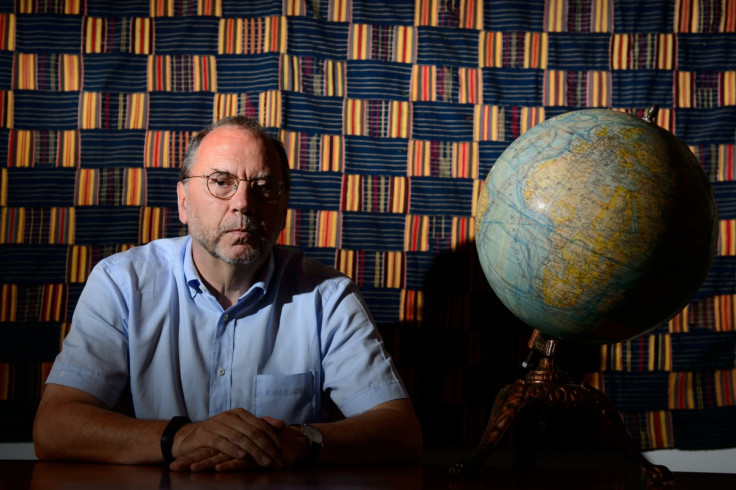Ebola Discoverer Peter Piot: 'I Would Sit Next to an Infected Person on the Train'

The scientist who helped discover the Ebola virus has said he would sit next to an infected patient on the London Underground and that the outbreak in West Africa was unlikely to trigger a major global pandemic.
Professor Peter Piot, director of the London School of Hygiene and Tropical Medicine, told AFP that a lack of trust in authorities in West Africa had contributed to the world's largest ever outbreak of the pathogen.
The former executive director of the United Nations HIV/AIDS programme UNAIDS said he did not believe the virus would give rise to a major pandemic, even if an infected person flew to Europe or the US.
"Spreading in the population here, I'm not that worried about it," he said.
"I wouldn't be worried to sit next to someone with Ebola virus on the Tube as long as they don't vomit on you or something. This is an infection that requires very close contact."
Piot discovered Ebola in 1976, as a 27-year-old researcher working in Antwerp. He was sent a blood sample from a Catholic nun who had died in what was then Zaire, and is now the Democratic Republic of the Congo.
He later visited Yambuku village, approximately 600 miles north of the modern-day capital city of Kinshasa, where an epidemic had gripped the locals. The majority of infections were among women aged between 20 and 30, centred around a pre-natal consultation clinic.
"People were devastated because in some villages, one in 10, one in eight people could die from Ebola," he told AFP. "I was scared, but I was 27, so you think you are invincible."
The virus, they discovered, was being spread through the reuse of infected needles on pregnant women, as well as through the funeral preparation process.
"Someone who dies is washed, the body is laid out but you do this with bare hands. Someone who died from Ebola, that person is covered with virus because of vomitus, diarrhea, blood," explains Piot, adding that the same thing was now happening in the most recent outbreak.
He said the history of Sierra Leone and Liberia, which has seen over 224 and 130 fatalities repectively since February, was hindering efforts to tackle the virus.
"These countries are coming out of decades of civil war," he said. "Liberia and Sierra Leone are now trying to reconstruct themselves so there is a total lack of trust in authorities, and that combined with poverty and very poor health services I think is the explanation why we have this extensive outbreak now."
He added that officials should test experimental vaccines on people with the virus so that the world is prepared when it returns.
"I think that the time is now, at least in capitals, to offer this kind of treatment for compassionate use but also to find out if it works so that for the next epidemic, we are ready."
© Copyright IBTimes 2025. All rights reserved.




















